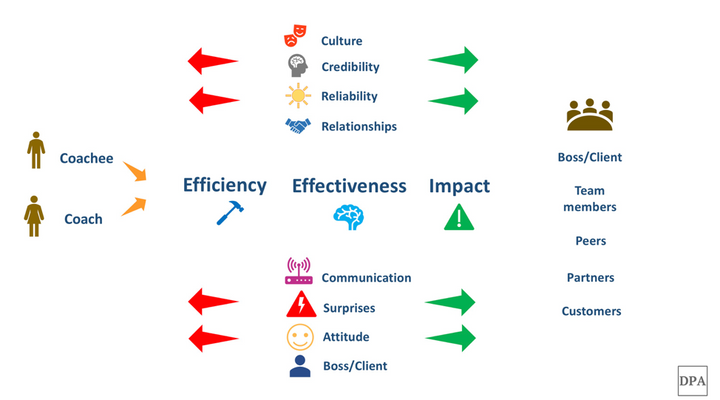A battle plan against exhaustion

Some owners and leaders are waking up exhausted today. They spend a few extra minutes in the shower, stare into the mirror with tired eyes, and drink an extra cup of coffee. Once outside, they stare at the wall with both hands on the wheel before starting the car. They flip through Sirius channels for a song that takes them back in time to a moment of comfort or excitement.
A boss of mine told a story about waking up in the middle of the night and, while walking to the bathroom, a reflection in the hallway mirror caught his eye and startled him. He wondered who that old guy was in his house! I know, hilarious. But achieving middle age is not a requirement for experiencing tiredness and feeling a bit older than we’d like.
Five factors that contribute to exhaustion
Technology drives our 168-hour weekly existence. We have become genetically incapable of untethering from our work. Technology never sleeps, and that’s a problem. Staying tethered creates stress. When we aren’t answering the buzz, we are waiting for it to happen. This makes it difficult to be present for anyone or anything else. Borderline distractedness disorder creates exhaustion. The cure: We need time for our brains to rest and our bodies to recharge. Schedule time to physically unplug from personal technology. Walk or run without it. Set aside air gap times when nothing or Spotify is the only thing that can reach your ears. Consider an app like Freedom that allows you to block some or all internet and app access for adjustable periods of time. Forget the notion that willpower is enough. If the technology cookie is in the house, we will find it and eat it.
Our need for control. If we feel the need to control, micromanage, check up on, or otherwise treat our people as a herd of sheep, we will be exhausted before our time. If we don’t find a way to trust and make sure we have the right, trustworthy people on the team, we cannot take the next career step as employee-leaders, and we cannot exit our business if we are owners. Just the thought of that possibility is exhausting. The cure: Remember that control is never perfect and it’s not free. Check first that you are showing up as a trustworthy leader. Make sure you are credible, reliable, and have a solid, respectful rapport with your team. Make sure that your leadership serves others before you. Next, build a trustworthy team by giving them projects and stepping back to allow them to work, acting as a coach and safety net. They will succeed or learn along the way, and you will free up time to work on mission-critical things. To paraphrase Steven Covey, stop getting caught in the thick of thin things.
Identity is at stake. We exist to work. If you are doing something that gives you juice, you are at work but not working. This kind of work generates energy. If instead, the motivation is to impress a boss, reach for the next rung of the ladder, or avoid other parts of your life that seem too hard, it is likely you will become tired, burned out, and exhausted in short order. The cure: The decision to be candles, blowtorches, or fireworks lies within each of us. The first leader lasts longer, the second one burns faster and hotter, and the last is awe-inspiring for a short time before he explodes and settles back to earth. Balance your pace and passion and focus on mission-critical things that matter to the business and you. It may help to think of your life segments as the tires on a car. If the work tire is correctly inflated, the social tire is under-inflated, the family tire is flat, and the physical tire is losing air, you will experience a bumpy and uncomfortable ride. And so will your passengers.
Other people depend on me. Effective leaders recruit and train the people required to replace them over time. It’s possible to be a great leader while you’re in the room but to have little impact when you’re not. The cure: Build a plan that cross-trains your team on mission-critical activities so that the absence of any individual does not result in failing the client. Importantly, the business owner who can hand off the blocking and tackling of his job has created a business that can operate without him. Some owners or CEO’s see that as a threat. It’s not. It’s an opportunity to scale the company, to grow the people, to serve clients at a higher level, to exit the business while maintaining its value, and to create a sustainable organization that can expand with new leaders at the helm. The freedom to step into a planned sabbatical or face an unplanned health event without the added stress of putting your primary asset at risk is a big deal.
My business has no value without me. This factor first appears to be egocentric in tone. More often it’s something else. Sometimes business owners don’t believe their businesses have intrinsic value beyond their hard work. They think that once they retire, the company retires with them. They don’t see any intellectual property around them. The cure: Find a trusted advisor with a broad-based knowledge of businesses and industries to assess your company and help identify the intellectual property. Listen to the findings and free yourself from the mistaken notion that your business cannot be sold or carry on successfully without you. It’s likely that you take for granted your process designs that deliver goods or services to your customers. Your customer list has value, perhaps, even more, when combined with another company’s complementary service or product. You may have trade secrets that you don’t think are anything special.
You may think that you do what everybody else does. You are wrong about that. The curse of competence is that once we know something, we assign less value to it. But the day before we had the ability, obtaining that knowledge was valuable to us. Many somebodies don’t know what you know yet. That fact has value.
Identifying areas of value
Once we identify areas of value, it creates a fork in the road. You can choose to continue as you were or begin to envision a future that increases the value of your asset and allows you to think about alternatives.
You may:
- Offer equity to trusted employees
- Set up an employee stock option plan to buy the company from you
- Establish partnerships with other organizations
- License your trade secrets to non-competitive industries or geographies
- Franchise your concept
- Create a plan to step back from the business when you are ready to do so, not when circumstances force an untimely retreat.
Takeaway: Whatever is going on for you, addressing exhaustion is a gift to yourself and the people you care about. The body eventually and always pays the price for our life choices and activities. Be selfish, ask for help, and set up some strategies and habits that give you room to fully live, work and play.


